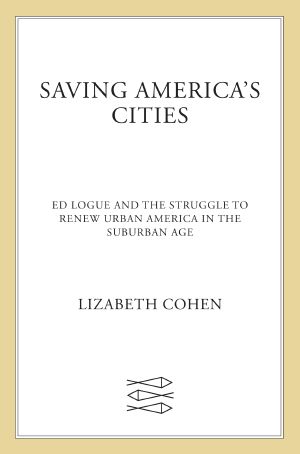Saving America's Cities

- Authors
- Cohen, Lizabeth
- Publisher
- Farrar, Straus and Giroux
- Tags
- history , politics
- Date
- 2019-10-01T00:00:00+00:00
- Size
- 82.98 MB
- Lang
- en
Winner of the Bancroft Prize
In twenty-first-century America, some cities are flourishing and others are struggling, but they all must contend with deteriorating infrastructure, economic inequality, and unaffordable housing. Cities have limited tools to address these problems, and many must rely on the private market to support the public good.
It wasn’t always this way. For almost three decades after World War II, even as national policies promoted suburban sprawl, the federal government underwrote renewal efforts for cities that had suffered during the Great Depression and the war and were now bleeding residents into the suburbs. In Saving America’s Cities , the prizewinning historian Lizabeth Cohen follows the career of Edward J. Logue, whose shifting approach to the urban crisis tracked the changing balance between government-funded public programs and private interests that would culminate in the neoliberal rush to privatize efforts to solve entrenched social problems. A Yale-trained lawyer, rival of Robert Moses, and sometime critic of Jane Jacobs, Logue saw renewing cities as an extension of the liberal New Deal. He worked to revive a declining New Haven, became the architect of the “New Boston” of the 1960s, and, later, led New York State’s Urban Development Corporation, which built entire new towns, including Roosevelt Island in New York City.
Logue’s era of urban renewal has a complicated legacy: Neighborhoods were demolished and residents dislocated, but there were also genuine successes and progressive goals. Saving America’s Cities is a dramatic story of heartbreak and destruction but also of human idealism and resourcefulness, opening up possibilities for our own time.